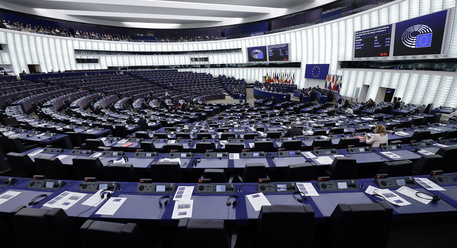(ANSA) - ROME, DEC 19 - In a remarkable year for elections,
nearly half of the world's population has been called to the
polls, including in eight out of the ten most populous
countries. In Europe, the elections for the European Parliament
took place in June and a number of national elections have been
held across the continent.
Punishment vote.
2024 has been an electoral year of global dimensions, with
presidential and legislative elections in 74 countries and
results favouring a range of political preferences.
However, some common denominators could be identified, such as
an average rise in participation and a general predominance of
the "punishment vote", a tendency to penalise the parties in
government at the polls.
Results marked a case of firsts for some countries: Mexico and
North Macedonia, for example, saw their first ever female
presidents take office this year. Romania saw its presidential
election annulled after the first round, also a historic first.
European Elections - a tilt to the right.
The European elections in June, one of the major global
elections of 2024, drew a new European Parliament more tilted to
the right, reflecting a more conservative tendency in many
countries of the European Union. It also gave rise to a European
Commission more dominated by the centre-right conservative
European People's Party (EPP) than ever before.
The European Centre for Populism Studies indicates in a recent
report that no fewer than 60 populist parties from 26 EU member
states obtained representation in the European Parliament in the
June elections, while in 2019 the numbers stood at 40 in 22
countries.
The consolidation of the populist right was confirmed in the
European elections and in national elections in 2024 in Europe,
where more and more far-right parties are part of coalitions, as
in the Netherlands, or constitute an important weight in the
balance of power.
According to the report, the populist right has established
itself in practically all member states and has performed
particularly well in countries such as France, Germany, Austria,
Romania and the Netherlands.
An annulment, a petition for one, snap elections and political
turmoil.
In a historic first, Romania's election has been annulled amid
reports of Russian interference in the election process in early
December. In Bulgaria, citizens were asked to vote for the
seventh time in just four years and the two largest EU economies
- Germany and France - have also seen their share of political
turmoil.
Romanians recently went to the polls to vote in the first round
of presidential elections which pro-Russian Calin Georgescu won
against all odds. Following the outcome, the entire electoral
process was - controversially - annulled by the Constitutional
Court of Romania (CCR) on December 6, two days before the second
round of voting. Voting abroad had already started.
Intelligence services reported that Romania was "a target for
aggressive Russian hybrid actions" and the court argued that the
entire election process had been flawed. Voters were said to be
misinformed in an electoral campaign before the election,
according to the CCR. One candidate benefitted from aggressive
promotion which circumvented election rules as well as through
abusive exploitation of social media platform algorithms.
Bulgarians saw their country's sixth and seventh parliamentary
elections within four years in 2024. Government-forming
negotiations are ongoing. While pro-European coalitions GERB-UDF
and CC-DB remain the two largest political forces, far-right
party Vazrazhdane came third standing at over 13 percent and
less than one percent short of CC-DB. The party also made its
debut in the European Parliament after the June elections with
three MEPs joining the far-right Europe of Sovereign Nations
group.
In early November, Bulgaria's Constitutional Court opened a case
contesting the legality of the election of MPs in more than 50
voting sections in the October elections. The petition, brought
by members of the former National Assembly, highlighted alleged
violations that took place during the voting process, including
vote buying, rigged vote counts, transfer of votes from one
party to another, and lack of the mandatory video surveillance
of the vote count.
In France, political instability in the EU's second-largest
economy followed early parliamentary elections called by French
President Emmanuel Macron in June. This came after the far-right
scored high in the European elections. While the far-right
National Rally (RN) won the first round in the parliamentary
elections, it suffered a defeat in the second round, hobbled by
electoral pacts between the left and Macron's centrists. On
December 13, Macron named centrist François Bayrou as prime
minister, handing him the daunting task of hauling France out of
months of political crisis.
He was appointed shortly after parliament ousted former prime
minister Michel Barnier's government in a historic no-confidence
vote following a standoff over an austerity budget. Bayrou is
the sixth prime minister of Macron's mandate and France's fourth
prime minister of 2024.
(continues).
(The content is based on news by agencies participating in the
enr, in this case AFP, Agerpres, BTA, dpa, EFE, HINA, MIA).
(ANSA).
Election Year 2024: first female presidents, shift to right
Nearly half of the world's population were called to the polls
